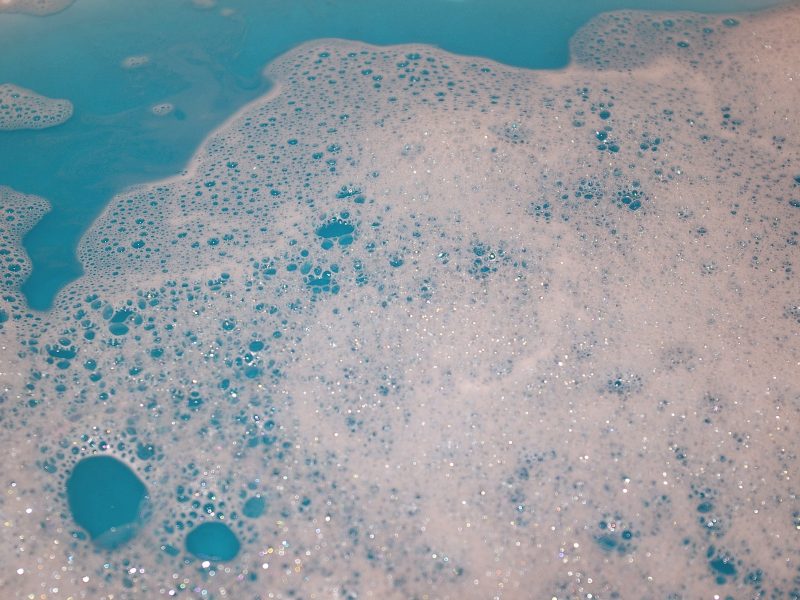Choosing the Best Defoamers for Your Manufacturing Line
Choosing the Best Defoamers for Your Manufacturing Line
Blog Article
The Role of Defoamers in Enhancing Item Top Quality and Performance
Defoamers offer as essential additives that alleviate this concern, ensuring smoother production workflows while boosting the practical and visual characteristics of the final products. The option of the ideal defoamer can be crucial to attaining optimal results, elevating important questions regarding solution compatibility and efficiency metrics that warrant additional expedition.
Recognizing Defoamers
Recognizing the duty of defoamers is necessary for preserving product high quality across different markets. Defoamers are chemical additives developed to prevent the development and lower of foam in fluid systems, which can negatively impact processes such as mixing, loading, and surface area stress. Lathering can result in inefficiencies, item issues, and endangered visual charm, making defoamers an important element in producing operations.
In industrial applications, defoamers help to boost item consistency and stability. In the paint and coverings industry, foam can conflict with the application procedure and the final coating. Likewise, in food and beverage production, too much foam can impede bottling and packaging efficiency (defoamers). The effective use of defoamers not just makes certain smoother production processes but additionally adds to exceptional item efficiency.
In addition, the selection and solution of a defoamer need to line up with details application requirements, such as compatibility with other active ingredients, efficiency under varying temperature and pH problems, and prospective regulatory restrictions. Eventually, understanding defoamers' features and their significance in numerous formulas is vital for optimizing production and guaranteeing the finest final product.
Sorts Of Defoamers
Defoamers can be categorized into a number of kinds based on their structure and device of activity. The main types consist of silicone-based, non-silicone natural, and not natural defoamers.
Silicone-based defoamers are amongst one of the most effective, primarily because of their capability to spread out quickly on the fluid surface and interrupt foam development. Their special chemical framework permits for superior stability, making them suitable for high-temperature applications and atmospheres with differing pH degrees.
Non-silicone organic defoamers, usually made up of fatty acids or all-natural oils, are valued for their biodegradability and reduced poisoning. These are generally used in food and beverage applications where security and environmental influence are paramount.
Inorganic defoamers, that include materials like talc or calcium carbonate, act by increasing the density of the liquid, thus lowering foam security. They are commonly made use of in commercial processes where compatibility with other products is not a worry.
Each sort of defoamer has unique advantages and constraints, enabling tailored options depending upon the specific lathering issues come across in different applications. Comprehending these distinctions is vital for enhancing performance and achieving preferred product quality.
Applications Across Industries
Numerous industries leverage defoamers to boost item quality and operational effectiveness. In the food and beverage industry, defoamers are crucial in processes such as developing and milk production to prevent foam formation, which can bring about ineffectiveness and item inconsistency. By managing foam, suppliers can make certain better yield visit the site and an extra uniform product.
In the pharmaceutical sector, defoamers play a crucial role in the formulation of liquid medications, where excessive foam can restrain mixing and precise dosing. Their use aids preserve the honesty of the solutions and assists in smoother manufacturing processes.
The paint and coatings industry likewise relies upon defoamers to improve the performance of products during application. By decreasing foam, these ingredients guarantee a smoother finish and boost the visual high qualities of the final product.

Advantages of Using Defoamers
While the application of defoamers differs throughout industries, their benefits consistently improve product high quality and process effectiveness. One significant advantage is the decrease of foam formation during making processes, which can or else cause manufacturing delays and incongruities in item quality. By decreasing foam, defoamers allow a smoother flow of products, helping with extra efficient operations and decreasing the chance of equipment breakdowns.
In addition, making use of defoamers can boost the look and texture of end products. In markets such as coatings, paints, and food handling, excessive foam can jeopardize the aesthetic appearances and general high quality, while the suitable defoamer application guarantees a consistent coating and preferable features. Additionally, defoamers can contribute to set you back savings by lowering waste during production and maximizing making use of next basic materials (defoamers).

Choosing the Right Defoamer
Choosing the ideal defoamer is critical for maximizing manufacturing procedures and making sure item top quality. The option of defoamer influences not just the effectiveness of foam control but additionally the overall efficiency qualities of the end product. Aspects to think about consist of the sort of application, the chemistry of the formula, and the ecological problems under which the product will be utilized.
Different industries might need particular defoamer kinds, such as silicone-based, natural, or polymeric defoamers. Understanding the compatibility of the defoamer with the main ingredients is necessary to avoid adverse reactions that might jeopardize item honesty. In addition, the defoamer's efficiency in different temperature levels and pH degrees have to be examined to make sure consistent efficiency.
Testing the defoamer in small applications can supply important understandings into its efficiency and viability. Consideration of governing conformity, especially in food, drugs, and cosmetics, is extremely important in selecting a defoamer. Ultimately, a detailed analysis of these factors will cause the option of a defoamer that not just regulates foam effectively but also improves the high quality and efficiency of the end product.
Conclusion

In verdict, defoamers are necessary additives that substantially enhance product top quality and performance across numerous industries. By effectively lowering foam formation, these representatives not just enhance functional effectiveness however additionally add to the useful and aesthetic stability of items. The critical choice and application of defoamers bring about set you back savings, optimized resource use, and increased client fulfillment. Overall, the significance of defoamers in commercial processes can not be overemphasized, as they play a vital duty in accomplishing premium and constant outcomes.
Foaming can lead to inadequacies, item problems, and compromised visual appeal, making defoamers an essential part in making procedures.

Report this page